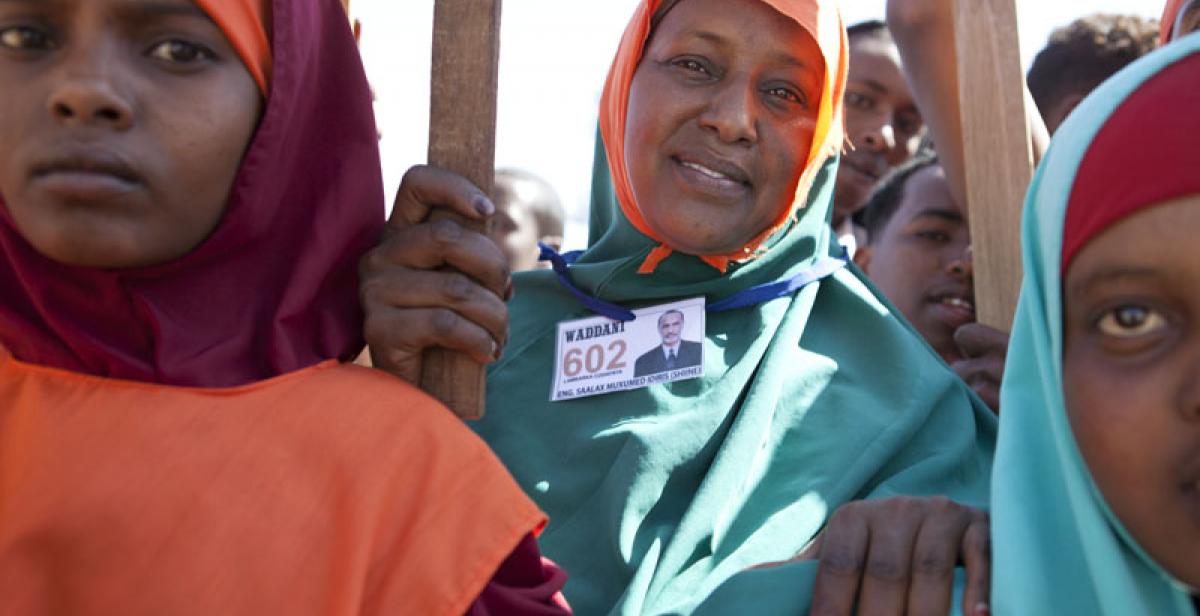"I have a wonderful feeling that I have been trusted and supported by sisters of my district to defend their rights." So says Fatima Fetiny, a champion for women's rights from Al Hali district, near Hodeidah in Yemen – and a participant in a Progressio project to combat discrimination against women.
Oppression and inequality have prompted women all over the world – women like Fatima – to become more vocal and active in campaigning for change. That's why International Women's Day is an essential yearly reminder of the very slow progress to make women's rights visible and the deep social transformations yet to be achieved.
The price of equality
The end of 2012 has reminded us of the enormous price women and girls have to pay to achieve social equality – from Malala Yousafzai (shot for her campaigning activities to achieve education for girls) to Dr Maria Santos Gorrostieta (murdered for her work against the Mexican drug cartel). These brave women are just two examples of the long road to achieve real equality and where impunity still prevails.
In spite of the harrowing nature of these and many other cases, women are not deterred and continue to make sacrifices willingly in order to have their rights recognised, to be valued and treated as rightful contributors to the development of their own societies.
Supporting women’s efforts
Progressio is supporting those efforts. In Somaliland, Progressio is supporting women's groups and organisations to establish a Somaliland Women's Agenda. These groups are using the agenda to help them lobby for the inclusion of women's concerns in the National Development Plan.
In Hodeidah, Yemen, Progressio is implementing a programme aimed at combating discrimination against women funded by the Foreign and Commonwealth Office. The project includes advocacy, training, awareness raising and sensitisation workshops and includes coverage through radio and other media campaigns.
Women's voices
Fatima Fetiny, from Al Hali district in Yemen, says: "It is my pleasure to struggle to change people’s perceptions, so that women are not just considered as a piece of furniture."
Salimah Ahmed, another champion of women's rights from Al Marawa district in Yemen, says: “I am from a rural area restricted and ruled by traditions and customs – for example, giving women their rights is considered going out from the limits religion imposes.
"As a result, many women in my area are refused participation in all fields of life. But I believe that, as a woman, I can make important contributions to my society without conflicting with my own religion."
Everyone must play their part
Our duty is to remember that, as active global citizens, the problem of discrimination, inequality and violence against women and girls demands to be addressed. Let's now celebrate International Women's Day by appreciating women's contribution to their societies, building solidarity and advocating for real changes, not tokenistic ones, before policy makers and world leaders.
Here are what our female Country Reps in Yemen and Somaliland, Abeer Al-Absi and Suad Abdi, are calling for:
1. To celebrate, acknowledge and appreciate the contribution of women to their societies in terms of development and leadership;
2. To advocate before policy makers and world leaders real changes rather than tokenistic ones;
3. To provide real financial contribution to women’s organisations so that they can advocate and promote interventions that address women’s needs;
4. To increase education, income generation and livelihood opportunities for women around the world;
5. To press for legal and policy reforms that aim at continuing addressing women’s inequality at local, national, regional and international level.
If you would like to add your voice to these Progressio women leaders and keep in touch with our work to forward equality for women please email: Lizzette@progressio.org.uk
(Photo: Women campaigning in Somaliland's local elections in November 2012, © Kate Stanworth / Progressio)



